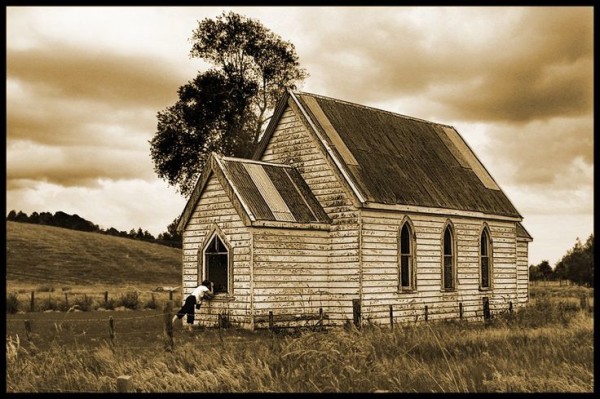We go back to 2 Kings 6 and introduce ourselves to four lepers who found themselves in an incredibly difficult situation. You see, the Syrians had been surrounding the city of Samaria for some time, trapping the people inside and cutting off all passage of supplies from them. That resulted in a severe famine that was so bad that parents had resorted to eating their own children (2 Kings 6:28-29). The problem these lepers faced was that they (1) weren’t allowed to enter the city, (2) would easily die where they sat with no provisions available, and (3) had only the Syrians to whom they could turn. With those three options in mind this was their conclusion – “If we say, we will enter into the city, then the famine is in the city, and we shall die there; and if we sit still here, we die also. Now therefore come, and let us fall unto the host of the Syrians: if they save us alive, we shall live; and if they kill us, we shall but die” (vs. 4).
To them the only option that was an option was to go. After all, “why sit we here until we die?” (vs. 3). So they ultimately went to the Syrians’ camp where God’s power had been working and, long story short, they and the entire nation of Israel were delivered from the famine (vs. 6-20). It was only because those four men were willing to take a step of faith that they and all the people were delivered from sure death.
There is an incredible parallel between that statement in 2 Kings 6:3 and the realities that we face in the church. We live in constant danger of our own inaction being our inevitable downfall. Maybe it’s a fear of the unknown that cripples us from moving forward and because we refuse to move forward we find ourselves in a quick and steady decline. Maybe it’s a satisfaction in what has been accomplished in the past and that satisfaction fuels our inaction. It could be pure stubbornness, an attitude that past success should always lead to future success without a willingness to accept changing needs for changing times. Whatever the cause, if it results in a church sitting idle it will inevitably die.
So what can we do to ensure that we never develop an attitude that will lead us to just sit here and die?
Never let the atmosphere of the church grow stale because of a stubborn commitment to tradition. Traditions aren’t always bad, but when we exalt them to the level of God’s commands they become dangerously evil. That’s one thing the Pharisees were known for the most and Jesus condemned them for it – “But in vain do they worship me, Teaching as their doctrines the precepts of men” (Matthew 15:9).
Never let fear control the boundaries of your work. Fear of what? I’ve seen fear control the work of a church on many levels. It may be a fear in terms of personal comfort. It may be a fear of what others think of us (even though what they had the potential to do is perfectly Biblical). It may be a fear of what reaction might be received from those being served. It may be a fear of whether an effort is going to be successful or not. Fear has far more control over our work as Christians than it should. The words “fear not” are used at least 15 different times throughout the New Testament. We need to develop the mentality among us that regardless of the circumstances or difficulties we might face that we will “stand fast in the faith, act like men, be strong” (1 Corinthians 16:13).
Never forget the true initiator of church growth. Churches don’t experience true growth just because they are more clever than other churches or because they have more to offer. True growth is initiated only by the power of the gospel and of God (Rom. 1:16; 1 Cor. 3:6). Too often we rely more on ourselves to initiate church growth than we should. Church growth will only come when our efforts humbly align under the umbrella of God’s power and expectations. He is the initiator of true church growth, not us.
I sit at times and think of the number of churches that once were successful, active, and growing who are now drying up or are already dead. The fact that it has happened to them reminds me that no congregation is immune from the very same thing happening. The work of the church demands action. Let’s not just sit here and die. Let’s work the work of God that we may live.
-Andy

